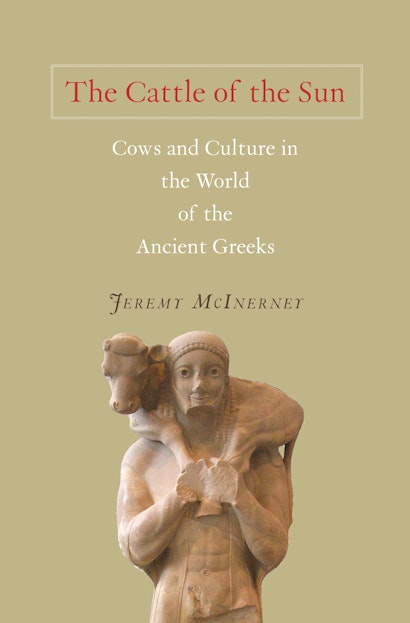The Cattle of the Sun: Cows and Culture in the World of the Ancient Greeks


Hardcover
- Price:
- $71.00/£58.00
- ISBN:
- Published:
- May 30, 2010
- Copyright:
- 2010
- Pages:
- 360
- Size:
- 6 x 9.25 in.
- 10 halftones. 1 table.
- Main_subject:
- Ancient World
ebook
Though Greece is traditionally seen as an agrarian society, cattle were essential to Greek communal life, through religious sacrifice and dietary consumption. Cattle were also pivotal in mythology: gods and heroes stole cattle, expected sacrifices of cattle, and punished those who failed to provide them. The Cattle of the Sun ranges over a wealth of sources, both textual and archaeological, to explore why these animals mattered to the Greeks, how they came to be a key element in Greek thought and behavior, and how the Greeks exploited the symbolic value of cattle as a way of structuring social and economic relations.
Jeremy McInerney explains that cattle’s importance began with domestication and pastoralism: cattle were nurtured, bred, killed, and eaten. Practically useful and symbolically potent, cattle became social capital to be exchanged, offered to the gods, or consumed collectively. This circulation of cattle wealth structured Greek society, since dedication to the gods, sacrifice, and feasting constituted the most basic institutions of Greek life. McInerney shows that cattle contributed to the growth of sanctuaries in the Greek city-states, as well as to changes in the economic practices of the Greeks, from the Iron Age through the classical period, as a monetized, market economy developed from an earlier economy of barter and exchange.
Combining a broad theoretical approach with a careful reading of sources, The Cattle of the Sun illustrates the significant position that cattle held in the culture and experiences of the Greeks.
